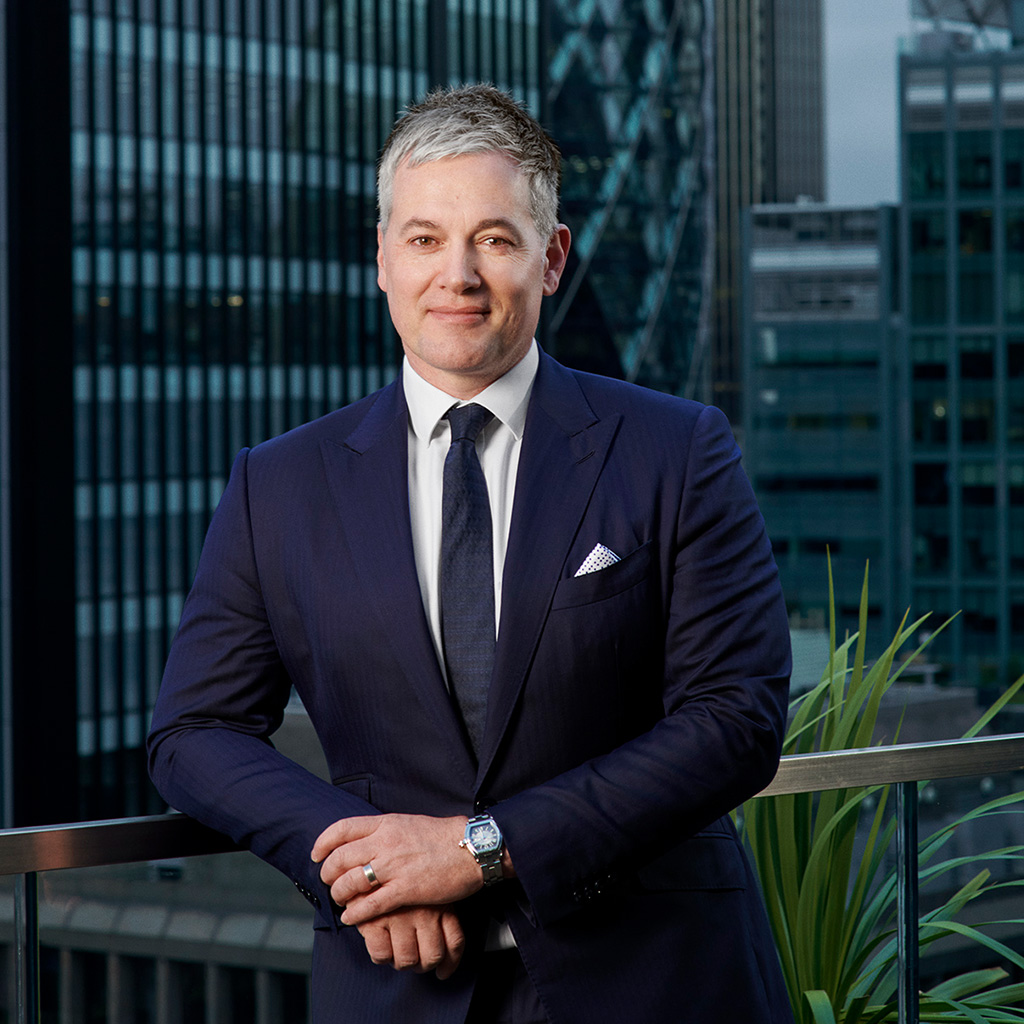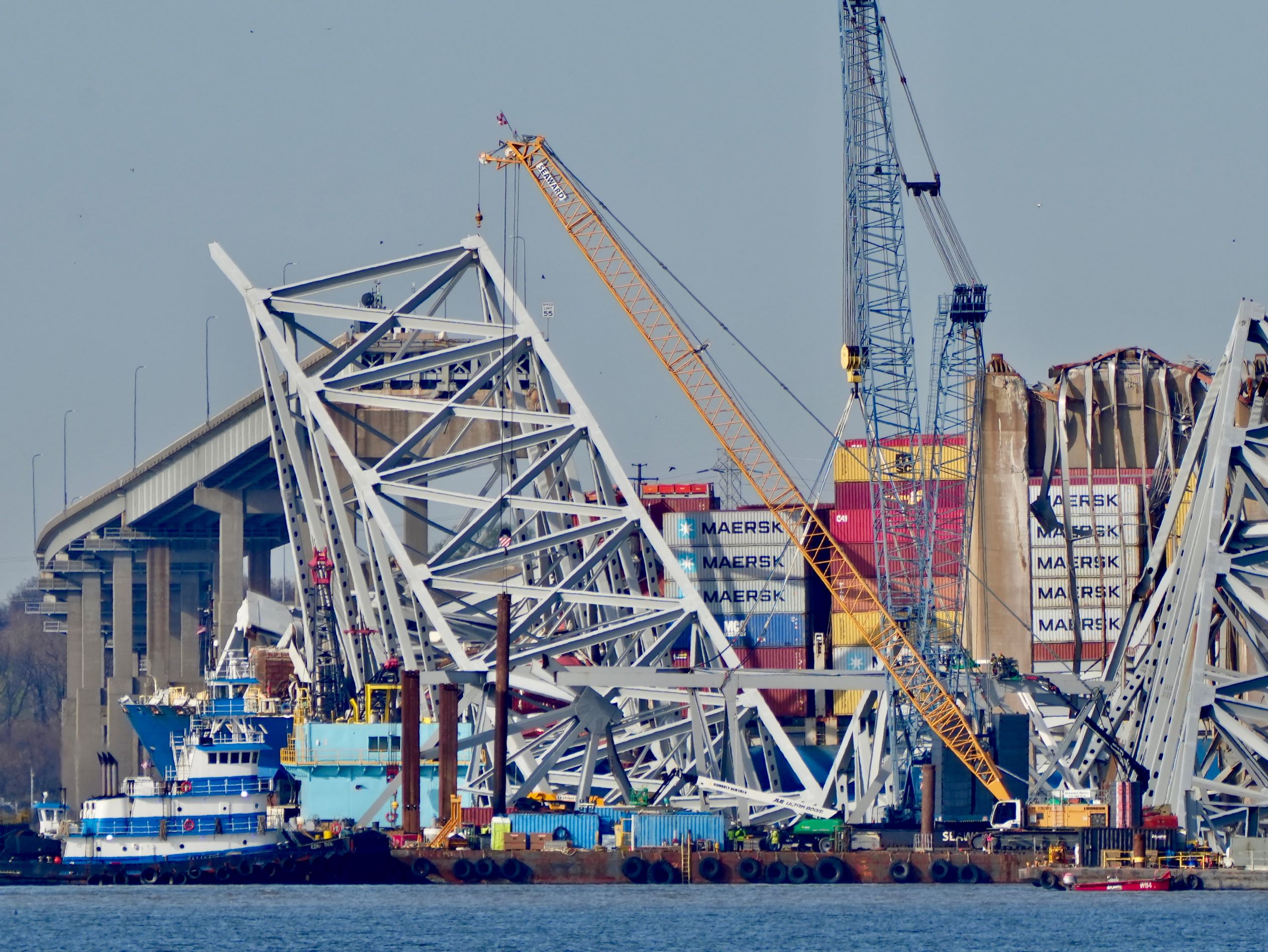The collapse of the Francis Scott Key Bridge in Baltimore after it was struck by a container ship could become the largest single marine insurance loss ever, according to Bruce Carnegie-Brown, chairperson of Lloyd’s of London.
Carnegie-Brown told Reuters he would be “very surprised” if the event did not result in a multi-billion dollar loss, adding that “the tragedy has the capacity to become the largest single marine insurance loss ever”.
Reinsurers are expected to take on the bulk of the insured cost of the collapsed bridge with most shipping vessels securing liability coverage through protection and indemnity insurers known as P&I Clubs.
Morningstar DBRS, the world’s fourth largest credit ratings agency, said the tragedy could lead to up to $4 billion in insurance claims.
Dali, the container ship that struck the bridge is owned by Grace Ocean and operated by Synergy Marine. The ship is reportedly covered by Britannia P&I Club.
The owner of the ship has filed a petition in federal court to restrict its amount of liability in the tragedy. Grace Ocean and Synergy Marine submitted the filing under the Limitation of Liability Act of 1851, a piece of legislation that enables ship owners to limit their liability for certain claims to the value of the vessel and its cargo at the end of its journey.
The law notably protected the makers of the “Titanic”. After the ship sank in 1912, its owner, White Star Line.
Mathilde Jakobsen, senior director, analytics, AM Best said: “The insurance issues due to the collapse of the bridge will take a long time to determine and may involve several lines such as property, cargo, liability, trade credit and contingent business interruption.
“The claim will likely involve several insurers, reinsurers, subrogation, and legal issues and will serve to add to the increasing challenges in reinsurance availability.”
Diana Zheng, head of marketing at Stallion Express, a Toronto-based company specialising in shipping and logistics said the bridge is most likely covered under inland maritime insurance, reportedly through Chubb. If the shipper has P&I coverage, Chubb is likely to seek reimbursement from that insurer, explained Zheng , a process known as subrogation.
The bridge collapse is also likely to cause a “ripple effect” which impacts on global supply chains, including the shipment of US, UK and EU car brands.
Officials have said that maritime traffic through the port – which last year amounted to more than 47 million tonnes of foreign cargo – will be suspended “until further notice”. It has been reported the port handled foreign cargo worth £63 billion ($80bn) in 2023.
There are questions about the possible effects on a global economy still reeling from the impact of the Covid pandemic and the Red Sea crisis, which have disrupted supply chains. Ships currently in Baltimore are trapped until the bridge can be cleared from the shipping channels.
More than 750,000 cars and vehicles passed through Baltimore in the last year and these include General Motors, Ford, Jaguar Land Rover, Nissan, Fiat, and Audi. Baltimore is the busiest US port for car shipments, and also the largest US port by volume for handling farm and construction machinery. It is also the second biggest port for US coal exports.
The ship hit a support column of the bridge which spanned the entrance to the Port of Baltimore, the ninth-busiest US port for foreign cargo. Six were killed in the incident.
Pete Buttigieg , the US Secretary of Transportation, said at a briefing there was “no question that this will be a major and protracted impact to supply chains. It’s too soon to offer estimates on what it will take to clear the channel and reopen the port.”.
The exact cause of the crash is still being established, but officials have said the ship suffered a “power issue” and issued a distress call before hitting the bridge.
The Maritime and Port Authority of Singapore, where the Dali was flagged, said the ship’s certificates covering its structural integrity and the functionality of its equipment were valid at the time of the incident. It also said the ship had passed two separate foreign port state inspections in June and September 2023.
W Denis arrange specialist (re)insurances for all types of businesses throughout the supply chain, as well as transportation logistics and marine organisations. Experts in W Denis provide solutions for Trade Disruption, Supply Chains, Cargo, Infrastructure, Vehicles and Vessels as well as Property and Contingent Business Interruption. To discuss further please make arrangements via [email protected]

Specialist contact
Mark Dutton
Executive Director / Group Head of Broking & Business Development
T. +44 (0) 7831 366 469
Arrange a call back



